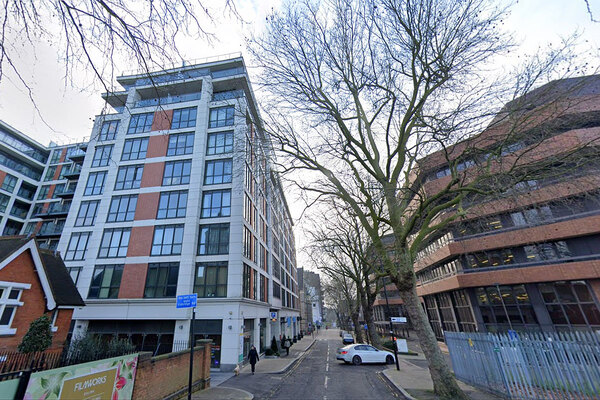You are viewing 1 of your 1 free articles
London landlords refute accusation of ‘widespread service charge misuse’ in letter to Gove
The chair of the G15 has written to the housing secretary to push back on the idea there is “widespread misuse of service charges” across the sector and highlighted the impact of building safety legislation, rising insurance premiums and uncapped utilities.
Fiona Fletcher-Smith, chief executive of L&Q and chair of the G15 group of London’s largest social landlords, addressed concerns raised to Michael Gove by another MP last month.
George Howarth had written to Mr Gove on 10 April to express his concern at the “widespread misuse of service charges within social housing”.
He went on to describe some of the recent issues with service charges as a “form of abuse” and “this scandal also represents a new form of benefit fraud”.
Mr Howarth’s letter was supported by 34 fellow MPs. In her response, Ms Fletcher-Smith said the G15 was “deeply concerned” by these assertions.
Instead, the G15 chair explained how the “important new building safety legislation has added an average of £177 a year to each resident’s service charge”.
She said: “Several of the measures we’ve introduced as part of this legislation also require ongoing maintenance, which brings in another ongoing cost.”
At the same time, building insurance costs have risen 92%. That is despite associations investing hundreds of millions of pounds to address building safety and quality issues, and many insurance companies that used to insure the sector have left the market.
This has led to less competition, risk aversion and soaring prices. Just last month, Inside Housing looked at how hikes in insurance premiums were having a devastating effect on both landlords and leaseholders.
Ms Fletcher-Smith said: “We would very much welcome government support to address this critical concern. “Support could include the government acting as the re-insurer of last resort to reduce premiums and service charge costs.”
While the government introduced a domestic energy price cap in 2022 when inflation first started to soar, business tariffs have remained uncapped and have increased 73%.
Additionally, she pointed out that professional fees that landlords pay to various organisations have increased by 69%.
Ms Fletcher-Smith said: “As you will know, housing associations are charitable organisations that do not make a profit from service charges. At the start of each year, we provide residents with an estimate of their service charges, based on the most recent costs available from our own organisations or, in many cases, the external managing agent.
“We try to make these estimates as realistic as possible, to avoid the need to recover higher amounts at the end of the year. If charges are overestimated, then residents will be refunded at the end of the year.
“Housing associations only recharge residents for the actual costs of services which are provided, and all our suppliers are procured using government-approved procurement processes and follow government legislation.”
She did acknowledge how increases, errors and inconsistencies are unwelcome and can frustrate residents.
In March, a tenant won a tribunal battle against Peabody over a rise in her service charge that was driven by the cost of the block’s managing agent.
Ms Fletcher-Smith said: “G15 members accept that improvements need to be made to the way service charges are set, collected and how we respond to queries about them, and improvement plans are being urgently implemented to address this. Members are recruiting additional resource to tackle this, too.”
In his letter, Mr Howarth said the current leasehold reforms do not address the current concern around this issue and called for a regulator of service charges.
Ms Fletcher-Smith pointed out all leaseholders have the right to challenge the reasonableness of any service charges under Section 27a of the Landlord and Tenant Act 1985.
Sign up for our asset management newsletter
Already have an account? Click here to manage your newsletters












